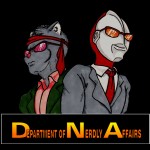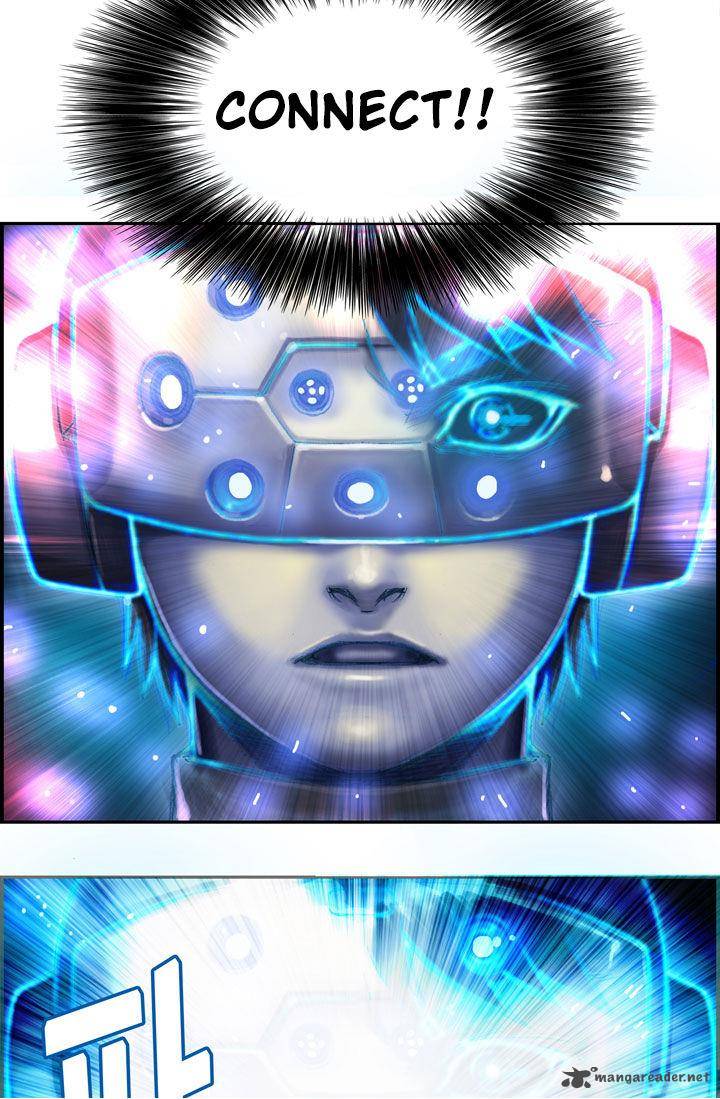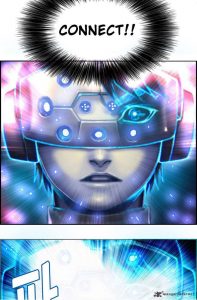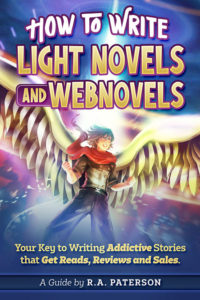
Don and Rob are joined by the awesome Ramon Meija of the litRPG podcast to talk about the biggest new genre you’ve probably never heard of- litRPGs. The three discuss the origins of the genre, what makes a litRPG, what books you should be checking out, and how the litRPG genre reflects the world we live in today. All that, and how to write litRPGs in this episode of the Department of Nerdly Affairs!
- Closing Music:
Ode to Joy performed by Oliver Eckelt
Things Discussed:
The litRPG Podcast
Gate of Revelation (the novel Rob couldn’t remember the name of where our world is the game world)
The King’s Avatar (another one Rob mentioned)
Legendary Moonlight Sculptor (English fan translation)
Adventures on Terra: Beginnings (Ramon’s Book! Check it out!)
Sword Art Online
Ready Player One
litRPG Forum- LitRPG Forum – Books, Geeks, & Gamification
Ramon’s Extensive Notes for the show:
What are litRPGs?
-
- LitRPG or literary RPGs are stories that incorporate role playing game mechanics.
- There’s a facebook group dedicated to LitRPG (https://www.facebook.com/groups/LitRPGGroup/) that’s had that discussion several times. As a group, we’ve come up with two identifying marks of LitRPG. I’ll paraphrase them:
- 1) The story must exist, at least partially, in a world with expressly stated game mechanics. This can mean that the story is set in an MMO, a VR game, an RPG game, or even a parallel or alien world. As long as there are expressly stated game mechanics. For example: Level up Notifications, Experience Points given for completing quests or killing monsters, learning game skills, health/mana bars.
- 2) The main character progresses in an expressly stated way. For example: Leveling up, Increasing skills or abilities, increasing ranks, or increasing reputation. Also by expressly stated, I mean that it says it in the text of the book and isn’t something that’s inferred or something only the author would be aware of.
- The easiest and most common way this is done is usually something like this:
- “A blue notification screen appeared before the character.
- You’ve gained 1 level.”
- It’s not complicated. It’s just not hidden in the background of the story or some table of information only the author sees. This type of information is conveyed to the reader. LitRPG, or literary RPG, merges the things gamers love about RPGs and MMOs and a good sci-fi or fantasy story. Those guidelines allow for maximum storytelling flexibility while maintaining the core elements of the genre.
How popular are they?
-
- Among the fans, amazingly popular. LitRPG stories are like literary crack to the fans. They just can’t get enough stories. I’ve personally read over 300 LitRPG novels and online stories this year.
- How big is the fandom?
- Our facebook group has about 3,000 members.
- Over 7,000 people visit the Royal Road regularly, a place where people post a lot of free/amature LitRPG.
- FogCon, a literary convention is considering adding a panel on the genre.
- It’s also a lot more popular in countries like Russia, Korea, China, and Japan.
Where did the genre come from?
-
- There have been stories set in Virtual Reality and game worlds since the 1970s, when there was a virtual reality boom. However, the recent explosion of LitRPG originates overseas in places Korea with the Legendary Moonlight Sculptor (2007), a story set in a virtual reality massively multiplayer online game (VRMMO). With the popularization of gaming culture worldwide LitRPG stories spread throughout Korea, China, Japan, and Russia.
- It’s only in the last 5 years or so that it’s spread to the U.S because those international works were translated into English either by fans or specialized publishing companies like Magic Dome Books.
Where did the term litRPG come from?
-
- Vasily Mahanenko, a Russian LitRPG author of Way of the Shaman, says he and another author came up with the term LitRPG or Literary RPG to describe their brand of fiction that has their stories set in game worlds (2012).
Why do people enjoy litRPGs?
-
- They’re fun. It’s the same reason people like to play video games and tabletop RPGs.They’re fun. They incoporate game rules that make sense to the reader. I’ve played video games for twenty years so the worlds that LitRPG stories exist in make more sense to me sometimes than the real world. Additionally many LitRPG stories speculate about a future where full immersion VR exists and people can explore their favorite MMOs as if they were real worlds. What gamer wouldn’t like that kind of world?
What do you wish people understood about litRPGs? (What is most people’s misunderstanding about them?
-
- I don’t know that the genre has been around in the U.S. long enough for people to misunderstand LitRPG.
- I guess if I there was one thing, is that while a lot LitRPG has video games as their base, not all video game fiction is LitRPG. They need to hit those two qualifies we talked about earlier: 1) Set in a Game World with expressly stated game mechanics, and 2) character growth in game terms.
How did you get into them?
-
- I fell into the rabbit hole that is LitRPG through my love of another geek culture. Anime. I saw the anime Sword Art Online and fell in love with the idea of living in a game world. So much so that I searched the internet for the original Korean Light novel that the anime was based on. I found that I enjoyed the books more and searched the internet for more like it. I read a ton of translated LitRPG from Japan and Korea. When I exhausted those sources I started trolling fan sites like the Royal Road and then paying good money for new stories on Amazon. Now I spend most of my waking hours either reading, writing, or podcasting about LitRPG.
What are the most popular LitRPGs and where do people find them?
-
- There are a lot of free LitRPG stories on the http://royalroadl.com/
- Translated fiction from other countries can be found on http://www.novelupdates.com/
- I have a recommendation list of 130 LitRPG series on my site: www.geekbytespodcast.com
- The most popular ones on Amazon:
- The Way of the Shaman series http://amzn.to/2gW9KvD
- Chaos Seeds series http://amzn.to/2gDLm1u
- Play to Live series http://amzn.to/2gW5hZY
- End Online series http://amzn.to/2g0ua29
- Dragon’s Wrath series http://amzn.to/2gDUAef
- Continue Online series http://amzn.to/2h38xz1
- Critical Failures series http://amzn.to/2gDPVbU
- Awaken Online http://amzn.to/2h38CTk
- Delvers LLC http://amzn.to/2gDUO4W
- Ascend Online http://amzn.to/2gWcUPW
- Are there different subgenres of LitRPGs? How are they different?
- Yes. Just about every sub genre of Fantasy and Sci Fi is also a sub genre of LitRPG. Some of the more unique ones are trapped in a game, transported to a game world, cultivation, dungeon master.
Why did you start the LitRPG podcast?
-
- I love LitRPG. I started interviewing LitRPG authors on my podcast the Geek Bytes Podcast as a way to express that love to those listeners and found they were really popular. So I spun it into it’s own podcast where I talk about LitRPG news, reviews and author interviews. The community has responded well.
What are some of the challenges of writing LitRPGs?
-
- The same challenges as writing normal. Figuring out a good story to tell and getting people to read it. Some of the unique challenges are figuring out the game rules your story uses. Most of the LitRPG authors I’ve interviewed have multiple spreadsheets to keep track of all the formulas they use, character sheets, skill and ability descriptions, and research material. That and how all your readers are gamer and are more than willing to point out the flaws in your game systems.
- Adventures on Terra: Beginnings http://amzn.to/2fXJRfw






Hmm. Edited/curated tRPG actual-plays could be coming at it from the other direction.
That’s an interesting point. I wonder if there’s a big market for those as well? I know some people have made Novels based on RPG campaigns, but usually those seem to be GMs turning their adventure plans into books.
Yeah…. I think that’s something closer to the classical version of this sort of thing: taking a game world and making it “real.” That is, presenting the story…. even though it’s BASED on a game…. as the characters would perceive it. So the character’s wouldn’t know they were in a game, and things would play out more or less how they do in a regular story; albeit affected by the physics of the setting.
Although you COULD go full litRPG with an actual game session, writing it from the character’s point of view but using game terms to describe things. Hell; I wonder if there’d be a market for writing an actually played game session AS a game session; flipping from the character’s point of view to the player’s. Sort of the prose version of a play-along video.
Don C.
Okay… on Rob’s suggestion I’ve been watching Sword Art Online. It’s pretty fun (for an anime 😉 ) and reminds me of “The Call Up” which I saw a while ago on Netflix as well. http://www.imdb.com/title/tt3923388/?ref_=fn_al_tt_1
I’m still a little unsure that LitRPG isn’t really a subset of Cyberpunk though. One could argue that the game stats make it definitively a flavour of Cyberpunk but really not much differently from it. In Sword Art Online the characters would die if they die in the game (ala Matrix). That of course doesn’t have to be the case, but it does raise the stakes. I think in the one I’ve envisioned I could write I wouldn’t go there. I think beneath the cyberpunk gaming story I have the real reveal is the player.
Once again, Jack shows his perceptiveness. If you go on Amazon, you will find that these novels are listed under cyberpunk as a sub genre. So, you were not the only person who thinks that, and I generally agree that they’re mostly a subset of cyberpunk. Except, there are some litRPG novels that are very much fantasy in every form except having worlds that include Game mechanics. So, are these really still cyberpunk stories?
Glad you enjoyed SAO, but feel free to stop watching at the end of the first major arc. (Around episode 14.) The first book was originally written as a one-shot story, and then because it was successful they did a whole bunch more. The first book, sadly, seems to be the best and that’s basically the first half of the first season. The second half of the first season is book two.
I think as long as it remains ostensibly “in the machine” even if it’s fantasy its going to be cyberpunk because it “magic” is limited strictly to game rules.
I think the big identifier for LitRPG is the game rules. One can have a Matrix like Cyberpunk system that doesn’t require the reader to know the rules, but a LitRPG wants to teach you the rules you need for leveling up and gaining special abilities.
I’ll probably finish that up.
Weird Anime Thing #5: Why is it that every Anime series I watch lately has this cheesy love theme running through it? Can be action, adventure, science fiction, or LitMag, but its this overly dramatic score about love lost.
>I think the big identifier for LitRPG is the game rules. One can have a Matrix like Cyberpunk system that doesn’t require the reader to know the rules, but a LitRPG wants to teach you the rules you need for leveling up and gaining special abilities.
I think that’s the key. And it’s that focus on the story AS game, rules and all that’s the defining characteristic…. and that the shifting of the focus is starting to take the litRPG down it’s own strange, new paths.
>Weird Anime Thing #5: Why is it that every Anime series I watch lately has this cheesy love theme running through it?
That became that standard in the 80’s ‘cos the stories shifted from action to drama. Even the giant robot stuff started focussing more on the characters and the interactions therein…. often making it a big part of the plot. So you get a lot of dramatic, even soppy love songs and the like ‘cos that’s where the focus was going. (It’s like all the action companies said, after Gundam 0079; “wait; WE can do that sort of thing too?!?!?”)
Don C.
>It’s pretty fun (for an anime )
….one of us ….one of us ….one of us….
>I’m still a little unsure that LitRPG isn’t really a subset of Cyberpunk though.
I definitely think that’s where it’s roots are…. there’s a lot of genetics borrowed from the old-school VR/net/cyber stories. But I think we’re starting to see it move into new territory; notably by dropping some of the VR, or moving it further to the background, and focussing more on the game part of things.
Don C.
How’s VR not Cyberpunk, Don?
J
>How’s VR not Cyberpunk, Don?
It IS, but in this case I think they’re taking it away from the cyberpunk roots…. and that there were non-cyberpunk VR stories back in the day. Some from presenting an alternate induced reality…. often using VR equipment…. as an anomaly. (Like when a supervillain would trap the hero in an alternate world.) Some sort of VR is necessary for a cyberpunk setting (mostly) and it’s generally presented as a p[art of the landscape, not a one-off creation.
There were also non-VR alternate induced reality stories…. where a character is placed in an alternate reality created by magic, or psionics, drugs, injury, or old school practical effects. ( https://www.youtube.com/watch?v=ZNfLIkYdPhM ) All of which are similar to the Cyberpunk ideal…. and many of which no doubt influenced it, but are jjjuuussssttttt different enough that I think they warrant their own considerations. Especially when we start getting into the later genealogy.
Don C.
That’s an interesting point. You could have a virtual world with clear rules that isn’t connected to computers in any way- magical, psionic, controlled dreams, etc. That wouldn’t be cyberpunk at all, but could still be litRPG. On the other hand, I’ve read Xianxia fantasy stories that obey every aspect of LitRPGs except that they aren’t virtual worlds all, just behave a lot like one in their own “laws of reality” for that world. They too, aren’t Cyberpunk, not are they technically litRPG, but they do have characters with levels and other similar characteristics.